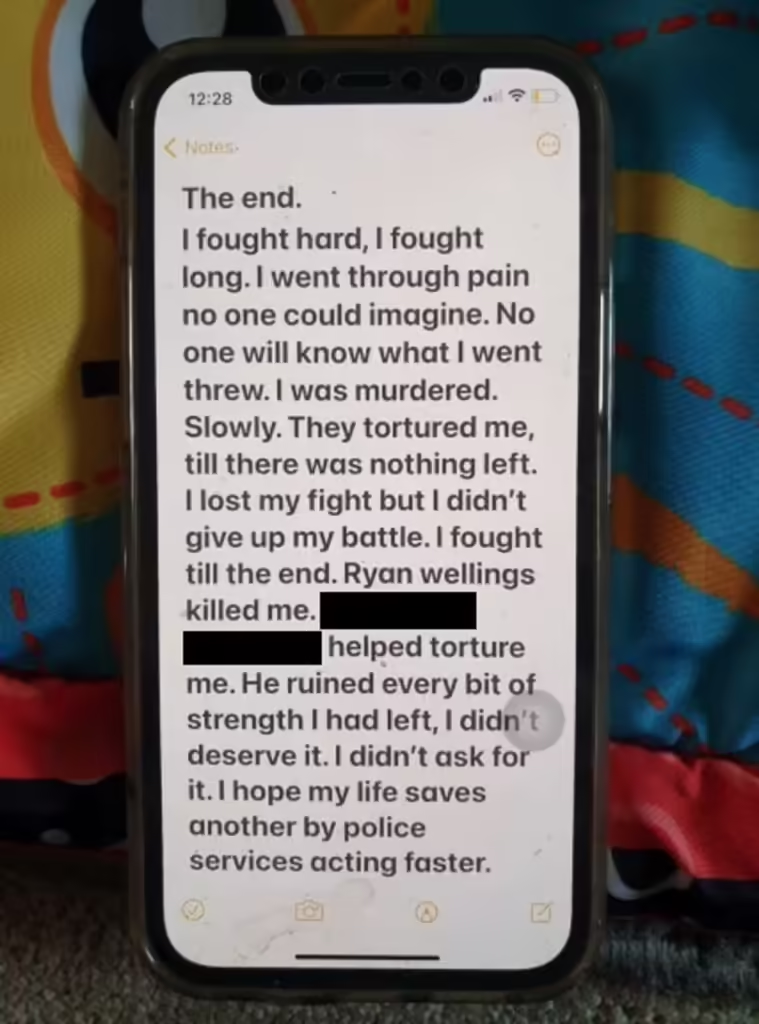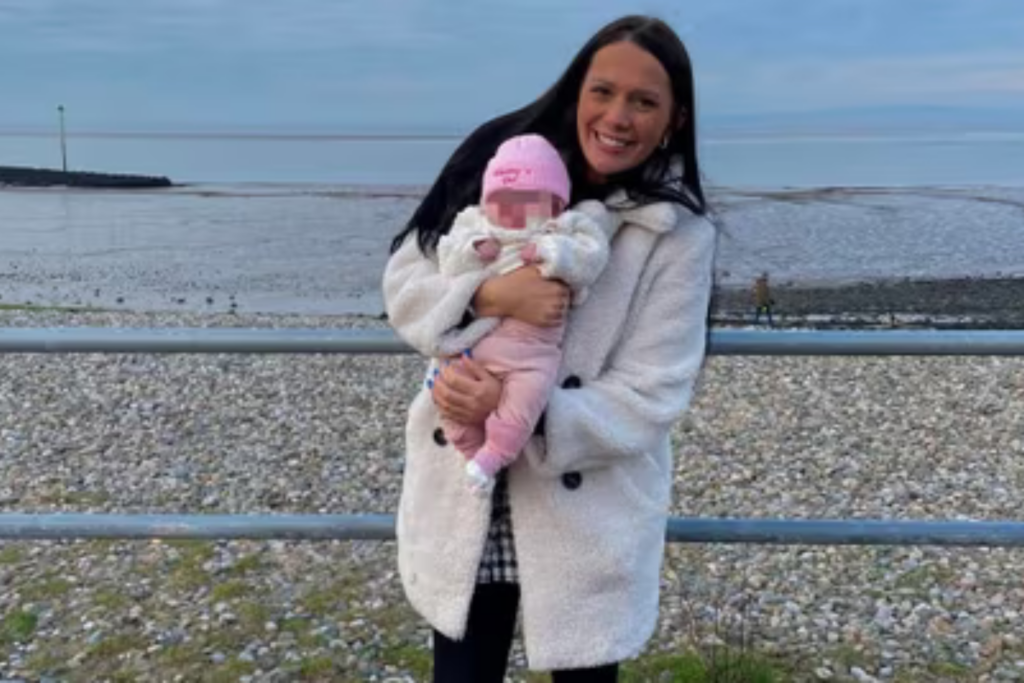Research has consistently shown a link between domestic abuse and suicide, but a recent court ruling following the death of a young mother has highlighted the urgent need for increased awareness of the issue.
Kiena Dawes, a 23-year-old mother from Lancashire in the UK, died by suicide on 22 July 2022, following a two-year period of domestic violence by her 30-year-old partner Ryan Wellings.
“Ryan Wellings killed me”, Dawes wrote, in a final note, where she spoke of being strong and having dreams, but having to go through unimaginable pain.
“No one will know what I went through. I was murdered. Slowly,” the note said.
“I lost my fight but I didn’t give up my battle.”
A hairdresser, Dawes was described as “bright and popular”, “almost universally loved” and someone who went from being a “happy-go-lucky girl to frightened all the time”.

In a court ruling on Tuesday, Wellings was found guilty of assault and prolonged domestic violence but cleared of Dawes manslaughter.
The court heard that Dawes initially thought the relationship was a “fairytale” romance, until the abuse started.
Within days of meeting Dawes, Wellings tattooed her name on his neck, followed by a portrait of her face on his leg. One witness told the court Wellings’ actions were “weird” and an early glimpse of the control he would place over Dawes.
The jury heard repeated evidence of violence that Wellings inflicted on Dawes, such as strangling her with an iPhone charger cable and making threats to drill out her teeth as well as throw acid on her.
In July 2021, Dawes presented to police with a black eye from Wellings, and just eleven days before her death, she was taken to hospital after police found her covered in blood from an attack by Wellings at their home.
More than once police were called, but the jury heard that Dawes declined to help prosecute Wellings after he threatened that she would have their daughter taken off them if she told police what was happening.
Following the attack that left her in hospital, Dawes did make a statement to police, resulting in Wellings being arrested. He then broke his bail conditions but was not locked up, leaving her feeling let down by police.
Dawes’ final note mentions that she hopes her “life saves another by police services acting faster”.
Three police officers are facing misconduct hearings for their actions over Dawes’ abuse.
Dawes had been diagnosed with an emotionally unstable personality disorder, a condition allegedly exploited by the defendant.
Throughout the trial, Wellings claimed he had never intentionally hit Dawes, insisting that her injuries were a result of him restraining her as she attacked him.
Research
According to data collected by the Victorian Suicide Register on 4,790 suicides reported between 2009 and 2016, in one in four suicides (24.5 per cent) the deceased had experienced family violence prior to their death. The rate was higher among females who died by suicide, with evidence of family violence present in 28.2 per cent of cases recorded.
International research has consistently shown a link between domestic abuse and suicide among women victims of violence.
Women with experience of physical or sexual violence were nearly 4 times more likely to attempt suicide than women without such experiences, according to a WHO multi-country study using population-based surveys.
Further research shows survivors of intimate partner violence are twice as likely to attempt suicide multiple times and cases of murder-suicide are most likely to occur in the context of abuse.
The quiet problem
Despite the clear link between domestic abuse and suicide, the issue has been called “the quiet problem” as experts say more awareness and research is needed.
Professor Kate Fitz-Gibbon from Monash University and Stefani Vasil, a lecturer at Australian Catholic University wrote on the subject, pointing out that “following the recommendations of the recent federal rapid review, there needs to be greater coordination at the commonwealth, state and territory levels to gather this data in the same way in every jurisdiction.”
Referencing Dawes’ tragic story, Gill Smallwood, MBE, who runs the Fort Alice Women’s Refuge, a charity providing frontline services for people who are, or have been, affected by domestic abuse and violence, told ITV Granada Reports that there are lessons to be learned about the impact domestic abuse has on a victim’s likelihood for suicide.
“We need to do far more awareness raising,” said Smallwood. Often people don’t realise until it’s too late and we are probably not doing enough to raise that awareness. It creeps in with the perpetrator, it’s often subtle and before you know it that perpetrator has a lot of control.”
If you need support, help is available. Please contact Lifeline 13 11 14; Beyond Blue 1300 224 636; Kids Helpline 1800 55 1800; eSafety.gov.au; headspace.org.au and au.reachout.com
If you or someone you know is experiencing, or at risk of experiencing, domestic, family or sexual violence, call 1800RESPECT on 1800 737 732, text 0458 737 732 or visit 1800RESPECT.org.au for online chat and video call services.
If you are concerned about your behaviour or use of violence, you can contact the Men’s Referral Service on 1300 766 491 or visit http://www.ntv.org.au.
Feeling worried or no good? No shame, no judgement, safe place to yarn. Speak to a 13YARN Crisis Supporter, call 13 92 76. This service is available 24 hours a day, 7 days a week.


